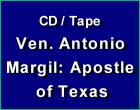Stories & Legends
 |
 |
 |
 |
 |
 |
 |
King Stephan of Hungary’s Admonitions
to His Son Emeric
When Atilla the Hun stormed Italy in the year 452, he was met by the Sovereign Pontiff Pope Leo the Great. The Hungarian chronicles record that the warrior received from Heaven the following message: "Hearken to the command of the Lord God, Jesus Christ. Thy pride shall not allow you to enter into the holy city where the bodies of my Apostles lie. Return. Later, one of your descendents will come to Rome with humility, and there I will cause him to receive a crown that shall last forever."
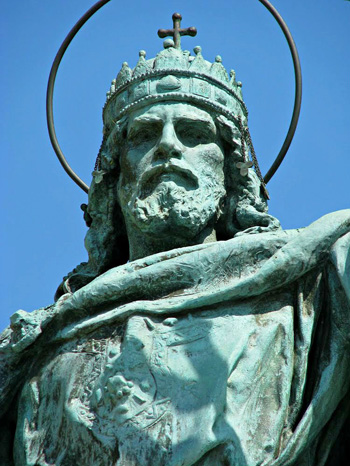 Attila thereupon recrossed the Alps, and had only just time to reach the Danube before he died. But, in the days of St. Stephen the heavenly promise was fulfilled.
Attila thereupon recrossed the Alps, and had only just time to reach the Danube before he died. But, in the days of St. Stephen the heavenly promise was fulfilled.
Indeed, Stephen inherited from his father Géza the dukedom of Hungary that had only a sprinkling of Catholics among the wild Magyars. He left it as a kingdom recognized by the Pope Sylvester II and a people firmly established in the Holy Faith.
He made two Codes of Law, in which he protected the rights of the Church and encouraged the worship of Christianity, and punished those who refused to practice it. Indeed, so great was his zeal for the propagation of the Faith, that he was called the Apostle of Hungary.
The King had the most ardent devotion towards the Mother of God, in whose honor he built a magnificent church, solemnly declaring her patroness of Hungary. In return the Blessed Virgin received him into Heaven on the very day of her Assumption, which the Hungarians, following the practice of their Holy King, call “the Day of the Great Lady."
Admonitions
The King wrote a guide with principles of government to his only surviving son Emeric. This work, called Admonitions or De institutione morum, counsels that kingship is inseparably connected with the Catholic Faith. St. Stephen instructs his son to consult and respect the Church Prelates, but also to admonish and punish clergymen who do wrong. He also instructs his son that his own life must be exemplary in the practice of the virtues.
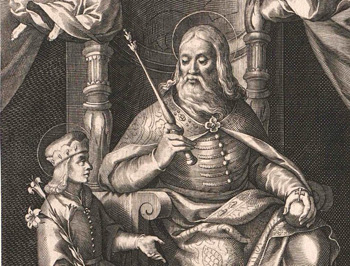 Let us consider here some of the wise counsels he left not only to his son, but as a legacy for all the future Kings and Rulers of Hungary:
Let us consider here some of the wise counsels he left not only to his son, but as a legacy for all the future Kings and Rulers of Hungary:
My dearest son, if you desire to honor the Royal Crown, I advise, I counsel, I urge you above all things to maintain the Catholic and Apostolic Faith with such diligence and care that you may be an example for all those placed under you by God and that all the clergy may rightly call you a man of true Christian profession. Failing to do this, you may be sure that you will not be called a Christian or a son of the Church.
Indeed, in the Royal Palace after the Faith itself, the Church holds second place, first propagated as she was by our head, Christ; then transplanted, firmly constituted and spread through the whole world by His members, the Apostles and Holy Fathers. And though she always produced fresh offspring, nevertheless in certain places she is regarded as ancient.
However, dearest son, even now in our kingdom the Church is proclaimed as young and newly planted; and for that reason she needs more prudent and trustworthy guardians lest a benefit which the divine mercy bestowed on us undeservedly should be destroyed and annihilated through your idleness, indolence or neglect.
My beloved son, delight of my heart, hope of your posterity, I pray, I command, that at every time and in everything, strengthened by your devotion to me, you may show favor not only to relations and kin, or to the most eminent, be they leaders or rich men or neighbors or fellow-countrymen, but also to strangers and to all who come to you. By fulfilling your duty in this way you will reach the highest state of happiness.
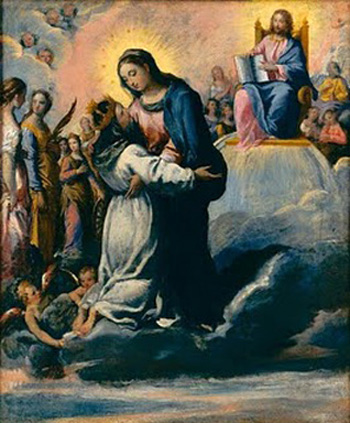 For if you destroy what I have built up or strive to disperse what I have gathered together, without doubt you kingdom will suffer the greatest damage. Lest that be, augment your kingdom daily, so that your crown may be held august by all. ...
For if you destroy what I have built up or strive to disperse what I have gathered together, without doubt you kingdom will suffer the greatest damage. Lest that be, augment your kingdom daily, so that your crown may be held august by all. ...
Be merciful to all who are suffering violence, keeping always in your heart the example of the Lord who said: I desire mercy and not sacrifice. Be patient with everyone, not only with the powerful, but also with the weak. Finally be strong lest prosperity lift you up too much or adversity cast you down. Be humble in this life, that God may raise you up in the next.
Be truly moderate and do not punish or condemn anyone immoderately. Be gentle so that you may never oppose justice. Be honorable so that you may never voluntarily bring disgrace upon anyone. Be chaste so that you may avoid all the foulness of lust like the pangs of death. All these virtues I have noted above make up the Royal Crown and without them no one is fit to rule here on earth or attain the Heavenly Kingdom.
King Stephen intended to retire to a life of holy contemplation and hand the Kingdom over to his son Emeric. But on September 2, 1031, at age 24, Emeric was killed by a boar in a hunting accident.
In Stephen's words of mourning he expressed his resignation in this great sorrow: "By God's secret decision death took him, so that wickedness would not change his soul and false imaginations would not deceive his mind."
Several wondrous healings and conversions happened at his grave. The son and father were both was canonized by Pope Gregory VII in 1083.
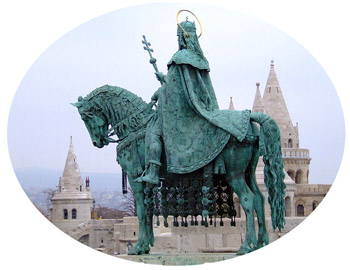

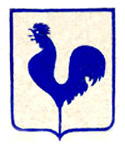

King Stephen of Hungary fulfilled the promise God made to Atilla
Indeed, Stephen inherited from his father Géza the dukedom of Hungary that had only a sprinkling of Catholics among the wild Magyars. He left it as a kingdom recognized by the Pope Sylvester II and a people firmly established in the Holy Faith.
He made two Codes of Law, in which he protected the rights of the Church and encouraged the worship of Christianity, and punished those who refused to practice it. Indeed, so great was his zeal for the propagation of the Faith, that he was called the Apostle of Hungary.
The King had the most ardent devotion towards the Mother of God, in whose honor he built a magnificent church, solemnly declaring her patroness of Hungary. In return the Blessed Virgin received him into Heaven on the very day of her Assumption, which the Hungarians, following the practice of their Holy King, call “the Day of the Great Lady."
Admonitions
The King wrote a guide with principles of government to his only surviving son Emeric. This work, called Admonitions or De institutione morum, counsels that kingship is inseparably connected with the Catholic Faith. St. Stephen instructs his son to consult and respect the Church Prelates, but also to admonish and punish clergymen who do wrong. He also instructs his son that his own life must be exemplary in the practice of the virtues.

The King gave a strong Catholic formation to his only surviving child, Emeric, preparing him to rule
My dearest son, if you desire to honor the Royal Crown, I advise, I counsel, I urge you above all things to maintain the Catholic and Apostolic Faith with such diligence and care that you may be an example for all those placed under you by God and that all the clergy may rightly call you a man of true Christian profession. Failing to do this, you may be sure that you will not be called a Christian or a son of the Church.
Indeed, in the Royal Palace after the Faith itself, the Church holds second place, first propagated as she was by our head, Christ; then transplanted, firmly constituted and spread through the whole world by His members, the Apostles and Holy Fathers. And though she always produced fresh offspring, nevertheless in certain places she is regarded as ancient.
However, dearest son, even now in our kingdom the Church is proclaimed as young and newly planted; and for that reason she needs more prudent and trustworthy guardians lest a benefit which the divine mercy bestowed on us undeservedly should be destroyed and annihilated through your idleness, indolence or neglect.
My beloved son, delight of my heart, hope of your posterity, I pray, I command, that at every time and in everything, strengthened by your devotion to me, you may show favor not only to relations and kin, or to the most eminent, be they leaders or rich men or neighbors or fellow-countrymen, but also to strangers and to all who come to you. By fulfilling your duty in this way you will reach the highest state of happiness.

Our Lady receives St. Stephen in Heaven on the Feast of her Assumption
Be merciful to all who are suffering violence, keeping always in your heart the example of the Lord who said: I desire mercy and not sacrifice. Be patient with everyone, not only with the powerful, but also with the weak. Finally be strong lest prosperity lift you up too much or adversity cast you down. Be humble in this life, that God may raise you up in the next.
Be truly moderate and do not punish or condemn anyone immoderately. Be gentle so that you may never oppose justice. Be honorable so that you may never voluntarily bring disgrace upon anyone. Be chaste so that you may avoid all the foulness of lust like the pangs of death. All these virtues I have noted above make up the Royal Crown and without them no one is fit to rule here on earth or attain the Heavenly Kingdom.
King Stephen intended to retire to a life of holy contemplation and hand the Kingdom over to his son Emeric. But on September 2, 1031, at age 24, Emeric was killed by a boar in a hunting accident.
In Stephen's words of mourning he expressed his resignation in this great sorrow: "By God's secret decision death took him, so that wickedness would not change his soul and false imaginations would not deceive his mind."
Several wondrous healings and conversions happened at his grave. The son and father were both was canonized by Pope Gregory VII in 1083.

Overlooking the city of Budapest

Excerpt from Notes on Parental Advice in the Middle Ages
by George Valentine Kendall, Thesis, 1913, pp. 7-21.
Posted September 4, 2021
by George Valentine Kendall, Thesis, 1913, pp. 7-21.
Posted September 4, 2021






